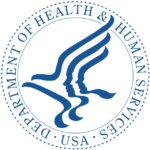While the government shutdown might seem like something that only happens once in a blue moon or only impacts government employees, nothing could be further from reality. Even if your organization’s only interaction with the federal government is your federal filings, chances are those you serve will be impacted. Here’s a breakdown of what the government shutdown means for nonprofits:
Overview
This is not the first time this has happened, and it is not likely to be the last. Previous shutdowns occurred in 2013 for 16 days (Clinton Administration) and 2018 for 25 days (Obama Administration). As with past shutdowns, services deemed non-essential will cease operation, and the federal employees handling those non-essential services will be furloughed. Examples of “essential” services include the postal service, military, and congress (hmmm…). This website has the latest information on contingency plans and how agencies may operate during the shutdown.
What does the government shutdown mean for nonprofit organizations?
Your Nonprofit Status is Not Considered Essential
Sad, but true. If you are pursuing tax-exempt status from the federal government, your wait may be extended beyond the typical 1-3 months for the short form and 3-6 months for the long form.
Federal Contractors Are Not Paid
If your organization has a contract for services with the federal government, you will not receive payments during the shutdown period.
Existing Federal Grants are Honored
If you were awarded a federal grant before the shutdown, you will still receive funding; however, if you are in the approval process or seeking to apply for a federal grant opportunity, the process will be delayed as long as the shutdown is in place.
What does the government shutdown mean for those your nonprofit serves?
If your organization serves vulnerable populations, this is where you will feel the most significant impact as critical services like Medicare, Medicaid, and family aid programs are affected.
 Health and Human Services
Health and Human Services
- Medicare payments are expected to continue; however, new enrollees may be delayed after a shutdown until furloughed employees return to work.
- Medicaid will continue as contingency funds allow the program to operate through roughly the end of 2023.
- An estimated 10,000 children immediately lose access to Head Start programs since new grants cannot be initiated during this time.
 USDA
USDA
- Some contingency funds are available for the Supplemental Nutrition Assistance Program (SNAP) and Women Infants and Children (WIC) to continue beyond the shutdown phase.
- There is concern over WIC program vouchers; some states have limited funds to continue the program, so persons trying to redeem these vouchers may be turned away from retail counters within days as funds are exhausted.
 HUD
HUD
- The HUD program currently has two months of operating reserves that can be advanced to public housing authorities.
- No new applications can be accepted during a shutdown.
- Monthly assistance programs, including Section 8 Housing Choice vouchers, public housing, and multi-family assistance contracts, can continue as long as funding is available.
- FHA housing work will continue, although processing of new or closing of loans in progress may be delayed until staffing is available.
 Social Security
Social Security
- Social Security payments will continue as scheduled.
- New applications for survivor benefits, retirement benefits, SSDI, and SSI will continue. Hearings will continue as scheduled.
- A few non-essential processes will be suspended during the shutdown, such as benefit verifications.
Katie’s nonprofit career includes a variety of leadership roles for human service, foundation, and publishing-related nonprofits, as well as many volunteer roles. Under Katie’s leadership, nonprofit organizations have developed new programs related to free healthcare, affordable and accessible housing, and literacy programs for K-12 students. In her first Executive Director role, Katie increased the annual revenue of the organization she led by 300% and received the top grant prize in the nation for affordable housing through the Federal Home Loan Bank of Indianapolis. She went on to help establish Do More Good, a nonprofit educational platform that eventually merged with Nonprofit Hub, one of the largest free content sites for nonprofits in North America.
Today, Katie serves as the contracted leader of Inform USA in addition to her work with Nonprofit Nav and as an adjunct professor of nonprofit leadership and fundraising for Cornerstone University.
Her educational background includes an undergraduate degree in business administration and a master’s degree in nonprofit leadership.
Katie serves on the boards of Gracious Grounds, the Grand Haven Children’s Museum, and the National 211 Steering Committee.

Recent Comments